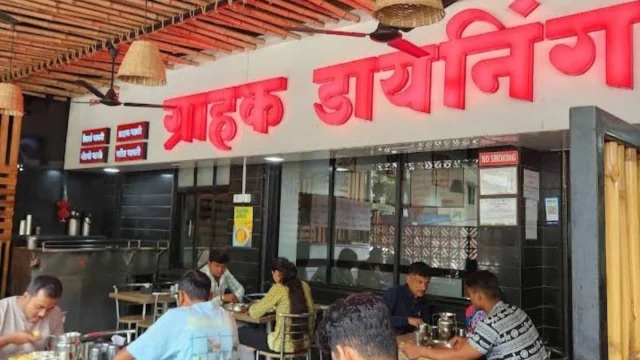Pune News
How Khanavals or Budget Eateries in Pune’s Sangvi Draw Students and Bachelors with Flavours and Warmth

Stroll through the lanes of Sangvi around lunchtime, and the inviting aroma of steaming dal, freshly cooked chapatis, and the earthy spices of zunka and thecha fills the air. Long before IT parks reshaped Pune’s suburbs, these humble khanavals—small mess halls—were more than just food stops for the city’s migrants; they were places that felt like family.The story of Sangvi’s khanaval culture begins with the 32-year-old Munde Mess, also known as Shree Ganesh Khanawal, started in 1994 by Krishna and Sarita Munde. “We were the very first mess in Sangvi,” recalls Krishna. “Back then, we served dal, rice, roti, and one sabzi for just Rs 8 a plate. Over time, we became known as the ‘5 bhaji wali Mess’ because we started serving five different vegetables daily.”
The Warmth of Home
In its early days, Sarita managed the mess alone. “For seven years, I handled everything—from cooking to washing utensils—before building a team of nine women,” she shares. Today, the couple proudly notes that many longtime customers, now in high positions, still return for a nostalgic meal.For regular patrons, Munde Mess was more than just food. “I ate here daily for four years while preparing for competitive exams,” says Abhijit Pingle, now Assistant Conservator of Forests at Shahapur. “The taste felt like home. Even now, whenever I visit Pune, I make sure to stop by.”Old-timers remember the long queues before opening time. “I used to arrive half an hour early just to get a seat,” recalls Prasad Gade, a regular for over a decade.
How Khanavals Flourished in Sangvi
Sangvi’s khanaval culture grew out of migration. Affordable rents attracted workers and students, many of them bachelors who couldn’t cook for themselves. Khanavals offered hearty, home-style meals at budget prices.Even today, new messes thrive. Mangalatai Chavan, who opened her khanaval a year ago, says, “I cook for around 100 bachelors every day. I manage everything from cooking to serving, and there’s never any leftover food.”Affordability remains key for students. “Every corner here has a mess,” says engineering student Yash Solanke.




